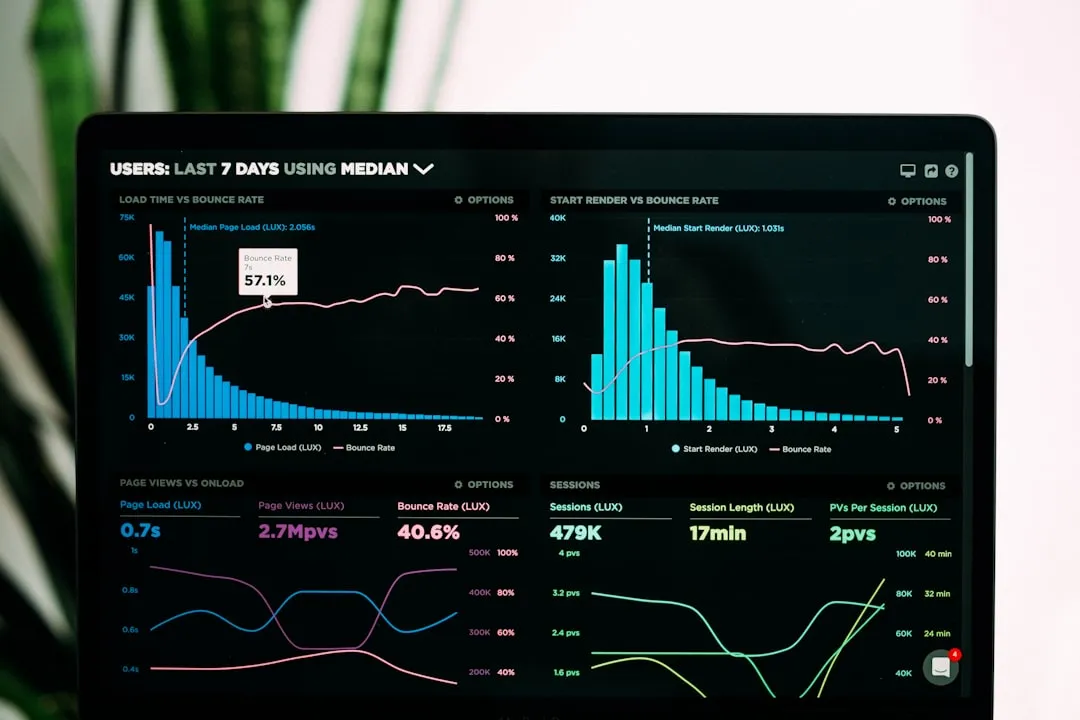“`json{ “seo_title”: “Trump AI Chip Policy to Dismantle Biden’s Export Controls”, “content”: “
Shifting Tides in AI Chip Policy
The Trump AI chip policy reversal announced this week signals a monumental shift in how advanced computing technologies will flow within global markets. As the administration prepares to dismantle Biden’s complex three-tier regulatory framework, the implications echo across the technological landscape, ushering in a new era for artificial intelligence and international trade.
Understanding the Three-Tier System
The soon-to-be-eliminated rule, the Framework for Artificial Intelligence Diffusion, established a hierarchical structure for global technology access. In the first tier, 17 countries plus Taiwan enjoyed unlimited access to advanced AI chips, enabling a free flow of innovation among trusted allies. The second tier, comprising approximately 120 countries, operated under strict numerical caps, limiting their imports and creating a bottleneck for technological advancement. The third and final tier, which included China, Russia, Iran, and North Korea, faced a complete blockade from accessing these vital technologies.
This structured approach aimed to prevent advanced technologies from reaching countries of concern through intermediaries while still allowing access for allies and neutral nations. However, critics argued the complexity of the system would create significant compliance burdens, potentially pushing international partners toward alternative suppliers. The Biden administration’s intent was clear: to secure U.S. leadership in AI while safeguarding national security.
The New Approach Taking Shape
In stark contrast, the Trump administration has signaled a move toward a more streamlined global licensing regime supported by inter-governmental agreements. This approach, as reported by sources close to the administration, offers more flexibility while maintaining necessary controls over sensitive technology. Notably, this policy shift comes as Trump prepares for a diplomatic trip to the Middle East, where nations like Saudi Arabia and the UAE have expressed frustration over existing restrictions on AI chip acquisitions.
“The Biden AI rule is overly complex, overly bureaucratic, and would stymie American innovation,” stated a Commerce Department spokeswoman, highlighting the administration’s intent to foster a more favorable environment for technological growth.
Market Reaction and Industry Impact
The announcement of the policy reversal has already sent ripples through the financial markets. Shares of Nvidia, the dominant manufacturer of chips utilized for training AI models, surged by 3% following the news. Nevertheless, they dipped 0.7% in after-hours trading, reflecting the market’s cautious optimism. Nvidia’s CEO, Jensen Huang, has been a vocal opponent of growing U.S. restrictions, advocating for American companies to engage with China, which he predicts could emerge as a $50 billion market for AI chips in the coming years.
However, it is crucial to note that the Trump AI chip policy shift does not equate to a complete abandonment of export controls. The administration has already demonstrated its willingness to impose strong sanctions against China, as evidenced by the decision to ban Nvidia from selling its H20 chip there, resulting in $5.5 billion in writedowns.
Global Winners and Losers
The policy reversal creates a complex map of potential winners and losers within the global technology landscape. Countries like India and Malaysia, which previously faced no chip restrictions before the Biden rule, will experience temporary relief. For Oracle Corporation, Malaysia’s case is particularly advantageous, as the company has plans for a significant data center expansion that would have exceeded limits set by the previous AI hardware distribution regulations.
Moreover, Middle Eastern nations stand poised to gain from this shift. The UAE and Saudi Arabia, both of which have encountered chip export controls since 2023, may now negotiate more favorable terms for acquiring advanced AI technologies. Trump’s expressed interest in easing restrictions for the UAE specifically could lead to the initiation of a government-to-government AI chip agreement during his upcoming visit to the region.
Uncertainty Ahead
The Trump administration is currently developing a new control scheme, which may emerge as either a new rule or an executive order. This transition period creates significant uncertainty for companies like Nvidia regarding the regulatory environment they will confront in the coming months. While the new framework takes shape, the administration has signaled it will continue enforcing existing chip export controls.
One potential element of this new approach could involve imposing controls specifically on countries that have diverted chips to China, such as Malaysia and Thailand. Industry stakeholders remain divided on the issue, with chip manufacturers lobbying against strict export controls, while AI companies like Anthropic advocate for maintaining protections that safeguard U.S. intellectual property and technological advantages.
Balancing Competing Priorities
The Biden administration’s export controls were designed to limit access to chips essential for cutting-edge AI development, particularly aimed at preventing Chinese firms from finding indirect routes to technology. Crafting a balanced approach that addresses national security concerns while promoting U.S. commercial interests poses significant challenges. Establishing agreements with a multitude of countries eager to purchase advanced AI chips would necessitate navigating complex diplomatic relationships and potentially creating dozens of separate policy frameworks.
The Commerce Department has yet to provide a specific timeline for finalizing or implementing any new rules, indicating ongoing debates on the optimal approach moving forward. The shift in Trump AI chip policy reflects a broader emphasis on American competitiveness and innovation while still maintaining control over technologies with national security implications.
The Road Ahead
As officials work to craft a replacement framework, the global AI chip market remains in flux. The implications for technological development, international relations, and corporate strategies in the evolving artificial intelligence landscape are profound. Companies must remain agile and adaptive, ready to pivot in response to the changing regulatory environment. The actions taken over the coming months will undoubtedly shape the future of AI technology and its distribution worldwide.
Conclusion
The Trump administration’s decision to scrap Biden’s AI chip export controls marks a pivotal moment in the ongoing technological rivalry, particularly between the U.S. and China. As nations scramble to position themselves at the forefront of AI innovation, the new policy landscape will serve as both an opportunity and a challenge for stakeholders across the tech spectrum.
“, “excerpt”: “The Trump AI chip policy reversal announced this week signifies a monumental shift in advanced computing technology flow. This analysis explores the implications of dismantling Biden’s export controls on global trade, innovation, and geopolitical relationships.”, “meta_description”: “Trump administration plans to scrap Biden’s AI chip export controls, impacting global technology markets and innovation. Discover the implications of this policy shift.”, “tags”: [ “AI”, “chip policy”, “export controls”, “Trump administration”, “Biden administration”, “global technology”, “innovation”, “Nvidia”, “international trade”, “geopolitical relations” ], “technical_keywords”: [ “AI chip”, “export controls”, “technology access”, “national security”, “international trade” ], “key_points”: [ “Trump administration to dismantle Biden’s complex AI chip export controls.”, “New licensing regime may replace the three-tier system for technology access.”, “Market reaction indicates positive sentiment towards Nvidia amid policy changes.”, “Countries like India and Malaysia could benefit from eased restrictions.”, “Uncertainty remains as new control schemes are developed.” ], “questions”: [ { “question”: “What changes are being made to the AI chip export controls?”, “answer”: “The Trump administration plans to dismantle the complex three-tier regulatory framework established by the Biden administration in favor of a simpler global licensing regime.” }, { “question”: “How will this policy shift affect global technology markets?”, “answer”: “The reversal is expected to facilitate easier access to AI chips for various countries, potentially enhancing technological innovation and competitive dynamics in the global market.” }, { “question”: “What implications does this have for companies like Nvidia?”, “answer”: “Companies like Nvidia may see a boost in market opportunities as restrictions ease, although they remain cautious due to ongoing export controls targeting specific countries.” } ], “schema”: { “@context”: “https://schema.org”, “@type”: “NewsArticle”, “headline”: “Trump AI Chip Policy to Dismantle Biden’s Export Controls”, “datePublished”: “2023-05-08”, “dateModified”: “2023-05-08”, “author”: { “@type”: “Person”, “name”: “Leading Technology Analyst” }, “publisher”: { “@type”: “Organization”, “name”: “Tech Analysis Weekly”, “logo”: { “@type”: “ImageObject”, “url”: “https://example.com/logo.png” } }, “image”: [“https://example.com/ai_chip_image.jpg”], “mainEntityOfPage”: { “@type”: “WebPage”, “@id”: “https://example.com/trump-ai-chip-policy” }, “articleSection”: “Tech Trends”, “keywords”: “AI, chip policy, export controls, Trump administration, Biden administration, global technology”, “description”: “Trump administration plans to scrap Biden’s AI chip export controls, impacting global technology markets and innovation. Discover the implications of this policy shift.” }, “faq_schema”: { “@context”: “https://schema.org”, “@type”: “FAQPage”, “mainEntity”: [ { “@type”: “Question”,

